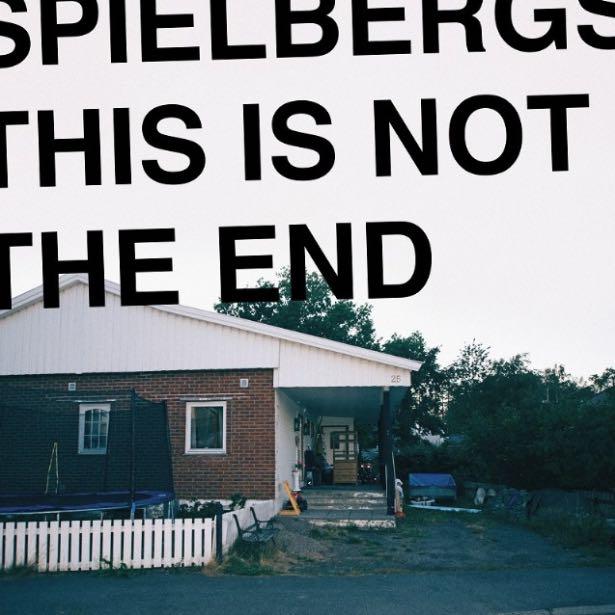Scandinavian bands emulating the vibe and sound of Anglo-American guitar music, whilst doing something pretty tremendous with it in the process, comes close to being a genre in its own right.
Think of bands such as The Hives, The Raveonettes, Kent, Communions, The Concretes, Sigor Ros, The Wannadies, Iceage and Mew, and while Norway’s Spielbergs sonically lean more towards North America and Canada than Great Britain, they do still fit this theory. Essentially, their debut This Is Not The End is about big choruses, with clear potential and scope to go stadium-rock.
Spielbergs are not re-inventing the wheel here but what they do produce is the creative juice of a fresh outlook, and their application makes everything feel new. Re-applying older sound components and values, but filtering them through young eyes, is not such a bad thing and in this instance it really does the trick.
While there are subtle references to current bands such as Japandroids and Feeder, the respect delves further into the past, bringing back memories of a band like Sugar and their frontman Bob Mould. This Is Not the End projects its own confidence and sound within those sonic parameters; technically, it’s the combination of relentless drumming, repeated riffs and heavy but anthemic, chorus-led songs that makes the album stand out.
It’s very tight and, for a debut record, knows its own worth. It dares to go places other bands wouldn’t necessarily think of. There’s an admirable sense of determination, ambition and drive. Take tracks such as Five On It, Distant Star and the super-catchy 4AM – they are upbeat, infectious and come with a pronounced epic vibe. There is an eagerness to stick to this throughout, to keep the pace up, because this album thrives on high pace, energy and the sense of a lingering vibrancy.
But this debut does contain some deviation, as the Elliott Smith reverb-laden vocals of Sleeper demonstrates, quite possibly the innermost-felt song on the album and something which perhaps could have been a more overriding influence, though the balladry of Familiar and the silence-versus-storm effects of You All Look Like Giants also create variety.
We Are All Going To Die, which is easy to assume is going to be full of doom, instead represents a surprise with its uplifting ambiance and flawless string of explosions throughout. A similarly fascinating effect happens during the sonic inferno of NFL, where ambition and drive is attached. And rounding things off by building towards an anticipated but rather attacking climax with SK and Forevermore really does work wonders. Seemingly, giving away a hint of melancholy at first, it teases as the grand finale intensifies in dramatic ways.
It’s a big moment rather than a signifying closure. It leaves the door ajar, making sure our interest doesn’t end just because the record does.




